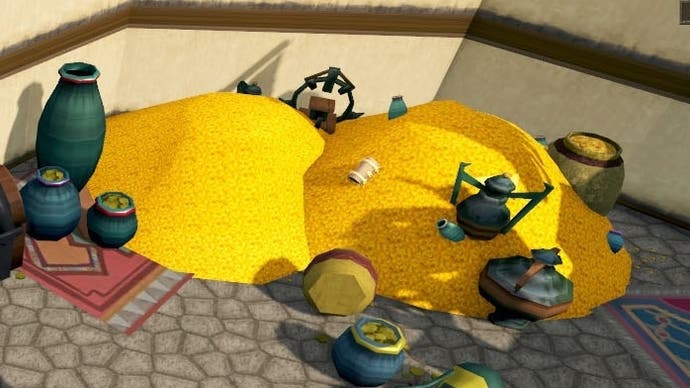After RuneScape's controversial 2019, Jagex plots "direct and deliberate" changes for 2020
Yaks, archeology and microtransactions.
RuneScape was the introduction to the world of massively multiplayer online role-playing games for many gamers; where many of us met our first online friends and learnt about that MMORPG levelling grind from hours of fishing. Even if you've never played RuneScape, then you probably had a friend who did, or maybe there's a chance that, like me, you're still playing to this day.
I've been playing RuneScape, with the occasional break, for over 13 years. Throughout these years I've witnessed both the lows, such as the removal of PvP in the Wilderness between 2007 to 2011, and the highs, such as the release of Old School RuneScape in 2013. I've completed fantastic quests filled with rewarding challenges and great storylines (my favourites are Ritual of the Mahjarrent and While Guthix Sleeps). All the time I've spent in Gielinor also means I've seen the rise of microtransactions and monetisation in RuneScape.
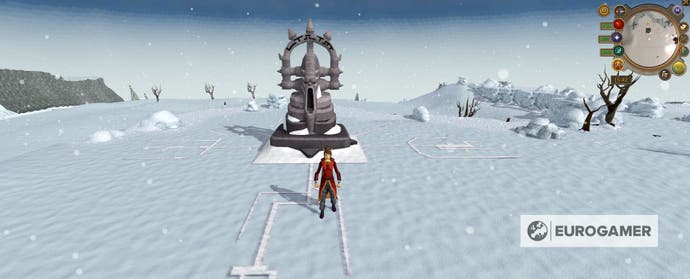
As a subscription based game, RuneScape has had an element of pay-to-play since the membership program was first released in February 2002. Since then the membership cost has slowly risen, but it took 10 years for developer Jagex to introduce a new form of monetisation and it was called Squeal of Fortune.
The concept was simple - players could win prizes, coins for example, by spinning a wheel. Each player received a certain number of free spins each day, while additional spins could be earned in-game or purchased using real-world currency. Players were quick to criticise the new feature as being a form of real-world trading, which RuneScape has a long history of fighting against.
In April 2012, Jagex redefined the rule about real-world trading in RuneScape, stating: "Real-world trading is the term used for activities which occur outside of the game environment which result in the real-world sale or purchase of items, gold pieces or services with the intention of supplying or advancing a Jagex in-game character other than by the means which are incorporated into the game." This change clarifies that real-world trading has to involve a third-party and that any form of monetisation owned by Jagex is omitted from this rule. But criticism of Squeal of Fortune continued, until it was replaced with Treasure Hunter in February 2014.
Treasure Hunter remains the current loot box system in RuneScape and has received similar criticism to Squeal of Fortune, due to players being able to purchase additional keys. It has also been criticised for creating a pay-to-win atmosphere, since many of its prizes, including a range of XP lamps (like genie lamps), supply players with large amount of experience they can spend on a skill of their choice. The focus of these arguments is using Treasure Hunter devalues both the scoreboad and the very act of skilling itself.
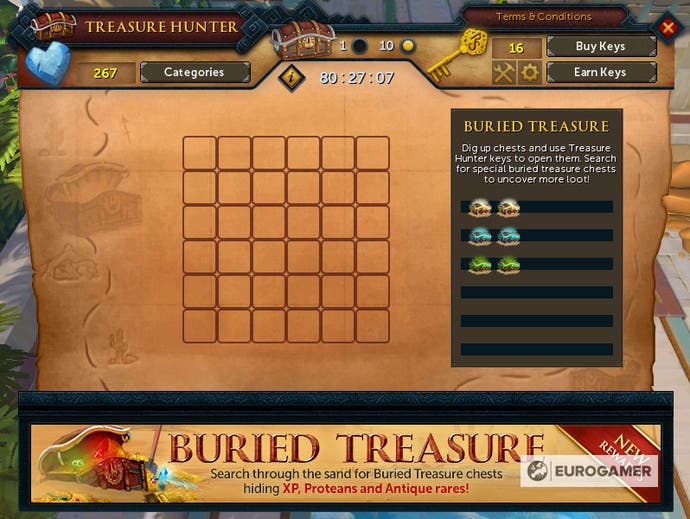
Player Redhorizon, who spoke to Eurogamer at RuneFest 2019, said: "Treasure Hunter was bad enough, but then you have the promotions that offer double experience." At the time of writing, Jagex has run 49 Treasure Hunter promotions during 2019. The Bubbling Lamps promotion, for example, has run twice in 2019, first in February and then in June, rewarding players with a selection of special XP lamps. These lamps could be redeemed for either direct or bonus experience, allowing players to quickly gain experience in skills that typically take a lot of time to train, such as Summoning and Agility.
Bonds and Solomon's General Store, two other forms of monetisation for RuneScape, have faced similar accusations from the player community. Bonds, which were introduced in 2013, can be traded between players in-game and redeemed for a variety of services, including membership and Treasure Hunter keys. Some players view Bonds as a form of real-world trading, since players must first purchase them using real-world currency.
Meanwhile, Solomon's General Store, which absorbed the Loyalty Store in 2013, has faced the same criticism, since many of its items must be purchased using RuneCoin, which, again, can only be purchased using real-world currency. The store originally focused primarily on cosmetic items, such as hairstyles or pets, but now allows players to purchase services, such as Bank Booster Packs, through the use of RuneCoin. Like Treasure Hunter, these items encourage players to spend additional money and put those who can't or choose not to at a disadvantage to those who do.
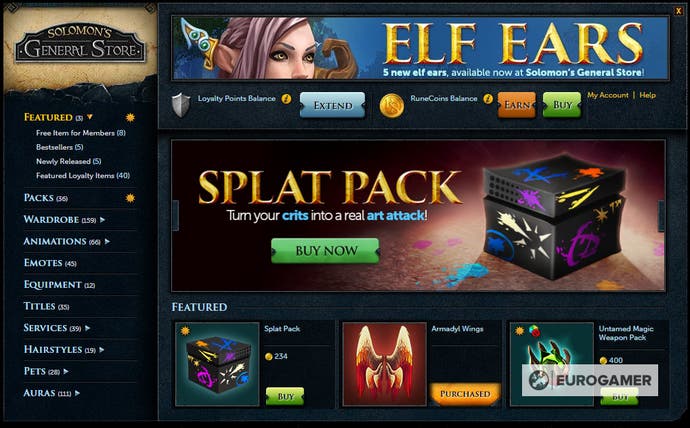
Jagex also introduced an enhanced version of the membership subscription program in 2012, called Premier Club. This special form of membership can only be purchased in the latter months of each year, usually between November and January, and has three tiers for players to choose from: Bronze, Silver and Gold. Each tier supplies a different period of membership, from three months to a year, at a discounted rate and a variety of other bonuses, including new cosmetic items, a discount on RuneMetrics and additional Treasure Hunter keys.
RuneMetrics is an analytics tool, which was released in 2016, that can be accessed both in-game and through the RuneScape website. It has a variety of features, including both a wealth and experience tracker. If you want to use RuneMetrics to its full potential, then you have to purchase a £3.99-a-month subscription to RuneMetrics Pro, which is separate to your actual standard £6.99 RuneScape membership.
Finally, Jagex experimented with a battle pass inspired event in July 2018, called RunePass. This two-week long event involved players completing a variety of tasks to earn rewards and, in proper battle pass style, there were two reward tracks players could follow: a free track and a premium track, which was purchasable for 400 RuneCoins (around £7). RunePass was criticised by the player base for feeling more like an extension of the daily challenge system, rather than being its own, unique, event. The free track was also criticised for lacking substantial rewards.
Jagex was aware of the problems with RunePass, however, as senior product manager Matt Casey explained to Eurogamer: "It [RunePass] was probably a little bit rushed and we didn't give it enough gestation time that resulted in a system that didn't offer enough value for players. It didn't have enough rewards and players felt it didn't represent good value." Casey added RunePass, and its successor Yak Track, are "part of a wider kind of initiative for us to look at how can we evolve our monetisation model and our strategy".
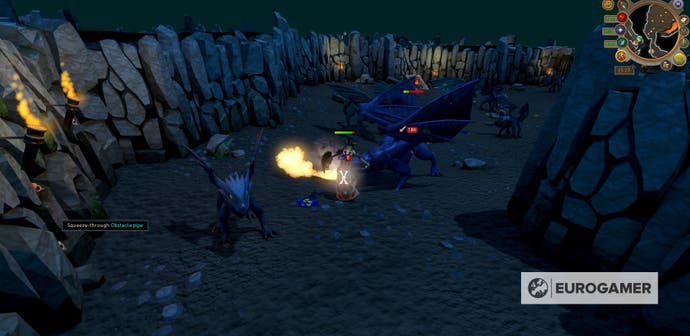
For many years the arguments over the implementation of monetisation in RuneScape were confined to the game's subreddit and forums, but in April 2019 Jagex gave oral evidence at the investigation into Immersive and Addictive Technologies run by the Digital, Culture, Media and Sport Committee.
Jon Goddard, head of corporate communications at Jagex, explained to Eurogamer that Jagex was approached "directly by the select committee to take part in the process and were invited to attend and give oral evidence directly to the committee". Jagex was invited to appear before the select committee, because, Goddard explained, the company "leads in areas like player safety and player protection". Jagex gave evidence alongside a variety of other game developers and social media companies, including EA, Epic Games and Instagram.
The report from this investigation was released on 12th September 2019. It included details on the weekly and monthly payment caps, £1000 and £5000 retrospectively, placed on players. Controversially, the report also included an anonymous complaint from the parents of an adult player, who had reportedly spent in excess of £50,000 on RuneScape. In the written evidence supplied by this anonymous individual, the complainant claimed their son "took out payday loans, bank loans and 'max'd' out a credit card", and detailed how this "financially ruined our [their] retirement plans" as they had to pay off their son's debt.
Once the committee investigated further, as evidenced in the minutes for the oral evidence given by Neil McClary, vice president of product and player strategy at Jagex, and Kelvin Plomer, director of player experience at Jagex, it became clear this figure is, in fact, closer to £17,000. Goddard explained, concerning this particular case: "We [Jagex] were unable to entirely corroborate the details that were submitted to the committee with our own records - there just wasn't an exact match, so it's very difficult when the complaint or the evidence is submitted by someone who is not the account holder themselves."
Jagex is currently awaiting feedback from the committee, which has been delayed due to the general election. Goddard commented that, even though Jagex is waiting for the response, "not only are we in a strong position already to answer many of the suggestions they may make, but we're also trying to be far ahead of it", and "I don't think that any business should sit back and think they do everything right when it comes to player support and player safety. That's why we're looking very, very proactively into what we can do and not just follow what we're told to do, but lead in that area".
Still, despite Jagex's readiness to listen to the committee's feedback, the report, and the evidence it held, reignited arguments about the place of monetisation and loot boxes in RuneScape, which encapsulate the discussion of these features in video games as a whole. Loot boxes and in-game currency stores may be described as optional, but the services and items they provide are attractive to players, particularly in live service games where there is often a pressure to maintain the same level of progress as the rest of the player community. RuneScape players can easily fall prey to this trap, because some of the game's best content, such as quests or new locations, are locked behind high skill requirements.
It's also impossible to avoid the microtransactions that exist in RuneScape. Every time you log in to the game you're taken to the lobby. Here you'll find adverts for the latest deals in Solomon's General Store or the Treasure Hunter promotion. Once you enter the game itself, an icon to open Treasure Hunter will appear in the top-left hand corner of your screen, which you have to manually close. The temptation to spend is always present and it shouldn't be.
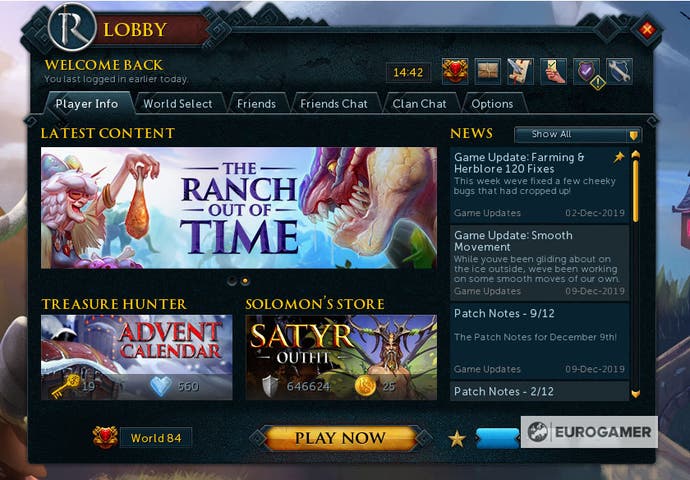
The question Jagex is tackling now is, how does it regain the trust of players who've become disenchanted with its implementation of monetisation? Jagex's answer is a willingness to experiment with both its live events and monetisation methods, with the goal of evolving beyond the current loot box system to one that is more appealing to players. This will also include revitalising and reworking older forms of monetisation, such as Solomon's General Store, over the coming years. Matt Casey said the aim of restructuring the monetisation with RuneScape is: "We want players to feel any content they paid for is done in a generous way, represents good value for money, and we want to be transparent with those systems."
If you play RuneScape, then you will have noticed the first of these experiments has already occurred. From 22nd November to 2nd December 2019, RuneScape ran a reworked version of its Double XP weekend. The difference being that, rather than having the event occur over the actual weekend, each player was instead given an allotted 36 hours of double XP to use throughout this week. This innovation, according to Casey, received a positive response from the community: "We got the right balance of players who wanted to min max it and not lose out, but, at the same time, feel like they have the choice of when to play."
This observation is certainly true; a large percentage of RuneScape players have been playing for five to 10 years and, as their lives become more complicated, the time they have for playing RuneScape dwindles. The re-imagining of the Double XP weekend allowed these players to take advantage of the event's bonuses without having to schedule their life around RuneScape, preventing what was meant to be a fun event from becoming an inconvenience.
The riskier experiment, however, was Count Yakula's Yak Track. As mentioned, the game's previous attempt at a battle pass-like system, RunePass, wasn't well received by players, leading to feedback from both the player community and internally at Jagex that helped play a major role in the creation of Yak Track. This was the right decision because, compared to RunePass, Yak Track is clearly the superior event in terms of both the rewards on offer and, most importantly, the tasks you complete to earn them.
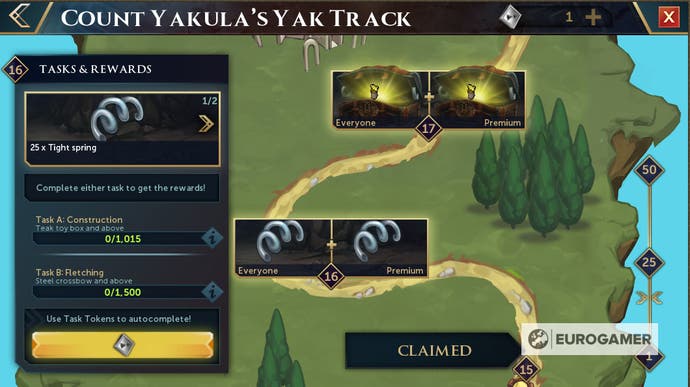
Unlike RunePass, where each player was given a series of daily tasks depending on which track they were on, each tier in the Yak Track has two dedicated tasks for you to pick from. These can either be skill-based tasks, which scale to your level in that particular skill, or an activity task, like picking cabbages near Port Sarim. This change ensures the Yak Track feels like a new piece of content, rather than just an extension of the daily challenges, especially since many of the tasks can take multiple hours to complete. Other alterations, such as a wider variety of rewards, extending the length of the event from two weeks to six, and ensuring Premier Club members receive the premium track for free, have also helped it feel like a unique event instead of an encore of RunePass.
The Live Ops team also used Yak Track as an opportunity to release an experimental update to Treasure Hunter that let players see the content of some loot boxes before buying them. Casey described it as "a new feature that's much more transparent, where players can still use their daily keys if they want to and they can still earn the same type of rewards, but it's a much more open system that increases the amount of player control and choice", and insists there's "still an amount of randomisation in the prizes selected around them, then if you use a key, you'll receive one of the prizes randomly, but you'll be able to see what they are, so if you see something you really want, you'll be able to go after it and get it".
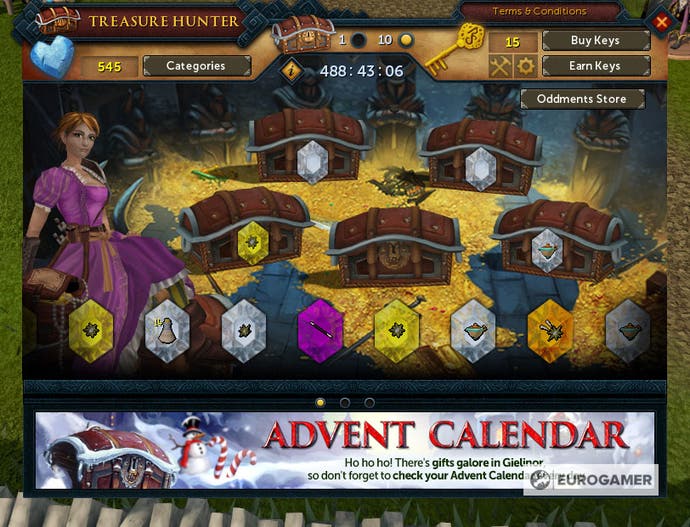
While this new features does give players an additional advantage when using Treasure Hunter, there will always be voices within the community that call for the removal of the loot box system entirely. It's highly unlikely, however, that Jagex will pull Treasure Hunter from RuneScape due to the revenue it provides. What Casey did tell Eurogamer though is the Live Ops team plans to run a number of tests throughout 2020 to help "find the right balance and the right kind of mechanics" as part of their commitment to "evolving our model, moving away from a standard loot crate system".
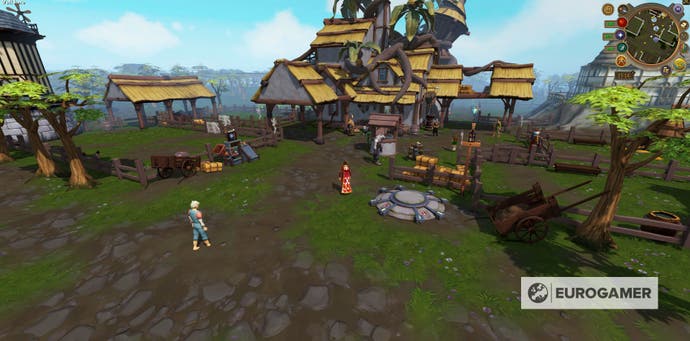
Aside from monetisation, another issue that plagued RuneScape throughout the late summer and early autumn months of 2019 was a lack of content.
Outside the release of The Land Out of Time, the majority of updates RuneScape experienced before November 2019 were focused around improving the game's quality of life, such as Bank Placeholders and the Slayer Collection Log. Only three quests were released this year, and the planned Weapon Diversity update was unfortunately cancelled.
Weapon Diversity was a modernisation project in a similar vein to the Mining and Smithing rework, which was released at the beginning of 2019. When asked about the project's cancellation by Eurogamer at RuneFest 2019, lead designer David Osborne explained: "It was meant to bring diversity to weapons so it feels different to have short swords, than it did to have a whip and it wasn't doing that as well as it should. I'm glad I'm part of a game that decided, 'No, we're going to cancel that.' Rather than just say we've put so much effort and sunk cost into this we want to launch it."
We currently live in an era where some developers release content in games that contains multiple issues, which are slowly fixed via patches after their release. It's refreshing to see Jagex decided against releasing an update it believed wasn't performing to the correct standard. The unintentional problem, however, was there wasn't anything to replace Weapon Diversity in the schedule. As Osborne said: "We cancelled that [Weapon Diversity] and it left a hole. What we need to get better at is having updates contingency."
This content drought was brought to an end with the release of the Ranch Out of Time feature, and both the Farming and Herblore skills being raised to level 120, at the end of November. RuneScape also promises to start 2020 off strong with the release of its 28th skill, Archaeology, in January, which looks perfect for Gielinor lore nerds like myself. Yet, to ensure this content black hole doesn't happen again, Jagex plans to temporarily increase the size of the RuneScape development team.
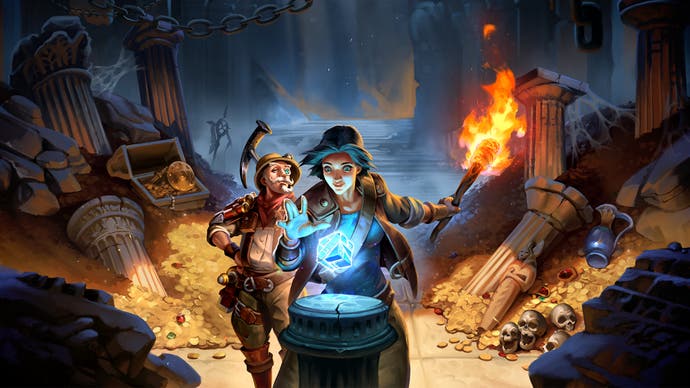
"We're going to get a number of people that can help us develop a number of projects," Osborne explained, "that means we have a contingency, so, if something like weapon diversity happens, as a subscriber you don't feel like you have an empty gap." Jagex will also create a subteam to work on developing new quests and remastering older elements of the game. The remastering subteam will begin with a rework of Managing Miscellenia, while the quest subteam will work on an Azzanadra quest.
The news of the quest subteam is especially welcome. For many players, the variety of quests available in RuneScape is one of the main reasons why they keep playing. You can join the rebellion against the vampyric lords in Morytania, uncover the secrets of the Elven race or find out why the penguins are acting suspiciously. There are even multiple murder mystery quests, including Murder Mystery, released in 2003, and The Needle Skips.
Quest development has slowed in the last couple of years, with four being released in 2018 and six in 2017, leaving the questers of RuneScape wanting. Hopefully the new quest subteam will create a new range of exciting quests, continuing the subversive, yet engaging, tone the game is known for. Two quests for 2020 have already been confirmed at RuneFest 2019: Desperate Measures, the sequel to Desperate Times, and a City of Sennitsten quest.
Jagex hasn't, however, just created a selection of new subteams. It's also increased the resources of all its major teams. Ryan Ward, executive producer for RuneScape, explained to Eurogamer: "We added resources to each of the teams and we actually had our teams focused on three different core areas: Live Ops, the Episodic Content and the Core Experiences." Ward added he is now "trying to look forward and look at the 2020 vision and 2020 road map, align each of the efforts from Episodic Content, Core Experience and Live Ops, so they actually feed into each other and they make sense to each other".
The hope is these additional resources should not only help increase the flow of content, but also support the experimentations with monetisation and Jagex's short-term goal, as Ward described it, of having the "players experience and see the real direct and deliberate changes and that we're in this regular cadence of feedback". This also signals an increased focus on communication with players, in both the terms of player protection and listening to feedback.
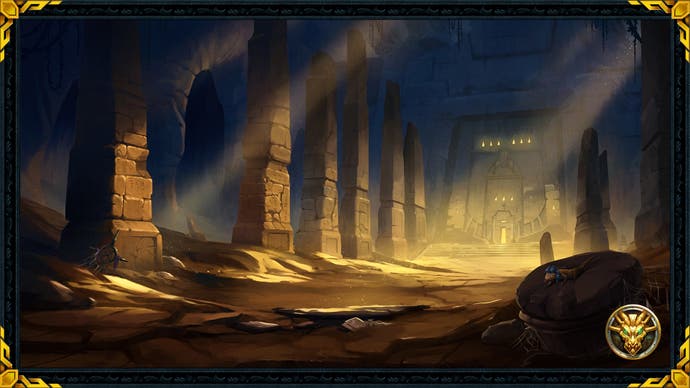
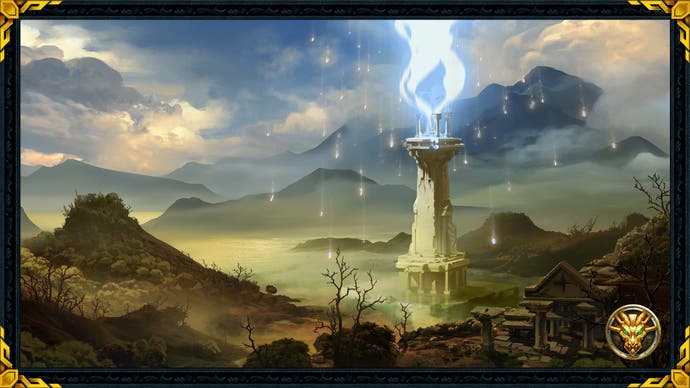
The challenges awaiting RuneScape and Jagex in 2020 lie in how it develops its approach to monetisation and its efforts to regain the trust of its community. Personally, I'm optimistic about the future of RuneScape, as the foundation for these goals already appears to have been set. The creation of the subteams and additional resources for the pre-existing teams should hopefully ensure players in 2020 don't experience a drop in content, while also helping new updates, such as Archaeology and the promised Elder God Wars dungeon, reach their full potential.
When it comes to monetisation, players are already experiencing the results of the Live Ops team's desire to innovate in the form of the Yak Track. Only the coming year, however, can tell us whether this success will continue and if Jagex can meet Ward's long term goal of becoming "where the industry looks for answers and solutions" for monetisation systems, with Jagex viewed as "the shining example of the gaming industry".
